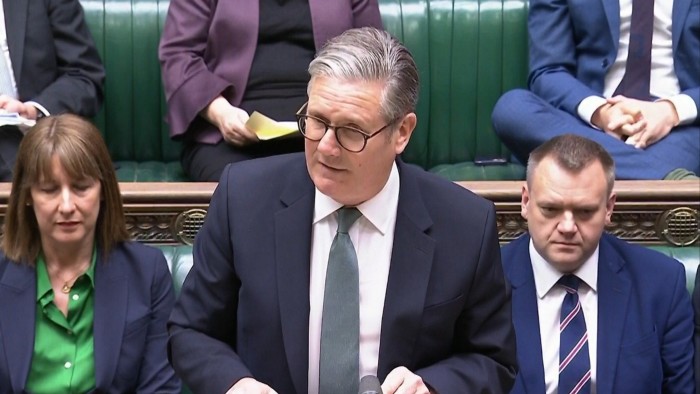Sir Keir Starmer has dashed the hopes of those wanting Britain to re-enter the EU customs union, arguing that doing so would “undo” any benefits from the UK’s recent trade deals with India and the US.
The British prime minister said the EU-UK deal struck on Monday — covering fishing, export checks and a potential future youth mobility scheme — was only the “beginning of a process” of working more closely with European neighbours.
But Starmer, speaking in a House of Commons debate on Tuesday, said that he would not be dislodged from his red lines, including staying outside the customs union. Britain left the customs union, which allows for free movement of goods within the EU, at the end of 2020 as Brexit was completed.
Some Labour aides privately believe that the government could end up considering some form of customs union with the EU in the coming years as an “emergency lever” if Britain’s economic growth outside the bloc does not pick up.
In the same debate, Liberal Democrat leader Sir Ed Davey welcomed this week’s deal but said it should only be the “first step”, calling for the government to be more ambitious in strengthening economic ties with the EU.
“We believe that a bespoke customs union is a key part of that, not turning back to the past, but forming a new partnership,” he said.
However, Starmer claimed that attempting to forge that kind of agreement with Brussels would jeopardise recent trade deals with other countries.
“The problem with his proposal, as I know he knows, is that we’ve just struck a deal with India, we’ve just struck a deal with the US, if we now undo that good work we undo all the benefits of those two deals,” Starmer said.
“For JLR and car manufacturers this is the here and now of their jobs at the moment, and that is why we have red lines and have kept those red lines and are not prepared to rip up the benefits we’ve negotiated in those deals.”
Starmer has been heavily criticised by Conservative politicians, including ex-prime minister Boris Johnson, who have said Downing Street gave too much to Brussels in the negotiations.
Tory leader Kemi Badenoch described the deal as a “capitulation”, adding: “He will say whatever was needed to be in power and now he’ll say whatever is needed to keep it even if it means selling out our sovereignty.”
Badenoch is trying to regain momentum after a poll of voting intentions by YouGov on Tuesday showed her party dropping to the lowest level in 24 years — at fourth place on 16 per cent, behind the Lib Dems.
Starmer cited support for the deal from business groups, and said the previous Conservative government had failed to strike trade deals with either India or US.




